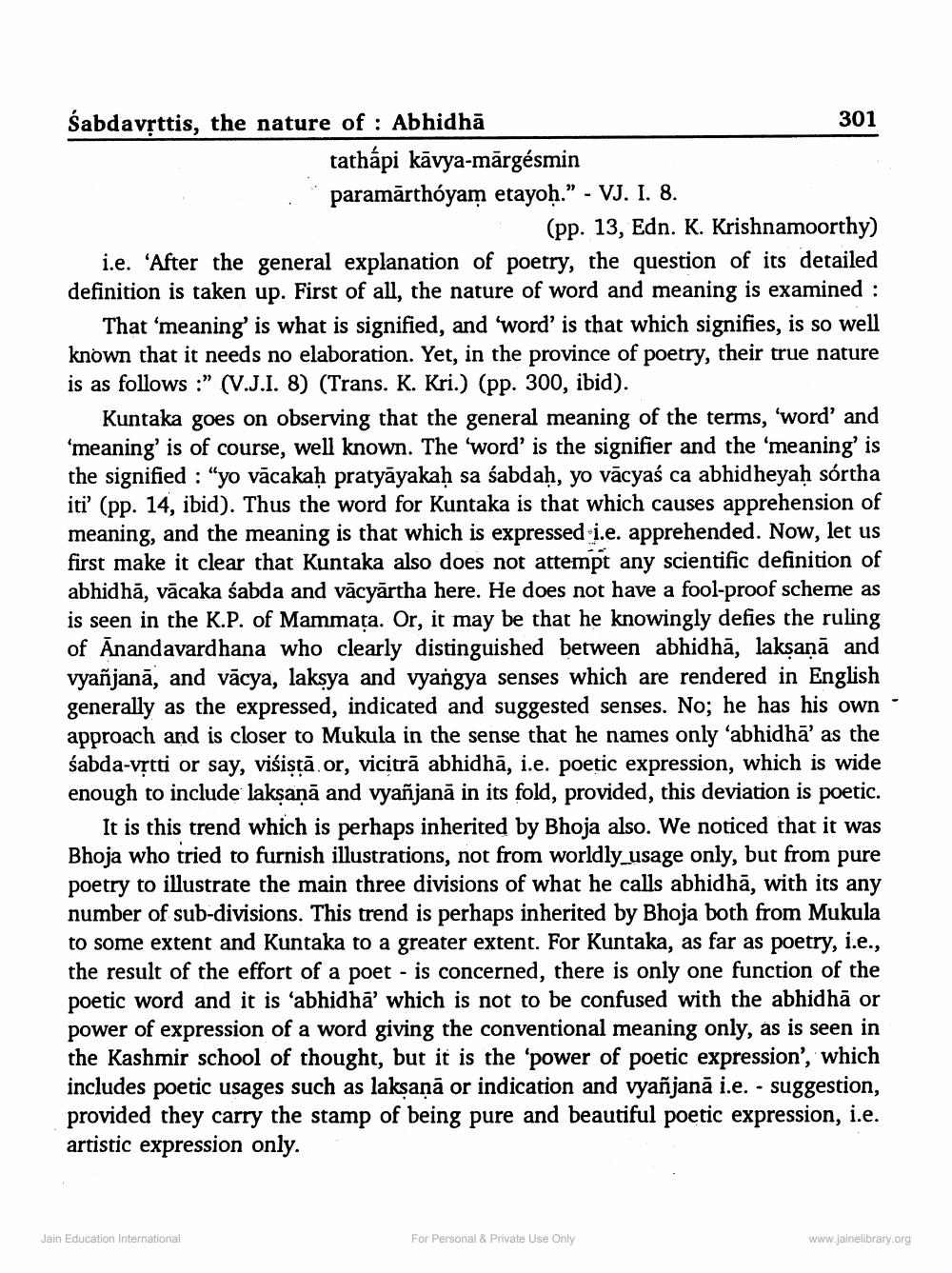________________
Sabdavṛttis, the nature of: Abhidha
tathápi kavya-margésmin paramārthóyam etayoḥ." - VJ. I. 8.
(pp. 13, Edn. K. Krishnamoorthy) i.e. 'After the general explanation of poetry, the question of its detailed definition is taken up. First of all, the nature of word and meaning is examined :
301
That 'meaning' is what is signified, and 'word' is that which signifies, is so well known that it needs no elaboration. Yet, in the province of poetry, their true nature is as follows:" (V.J.I. 8) (Trans. K. Kri.) (pp. 300, ibid).
Kuntaka goes on observing that the general meaning of the terms, 'word' and 'meaning' is of course, well known. The 'word' is the signifier and the 'meaning' is the signified: "yo vācakaḥ pratyāyakaḥ sa śabdaḥ, yo vācyaś ca abhidheyaḥ sórtha iti' (pp. 14, ibid). Thus the word for Kuntaka is that which causes apprehension of meaning, and the meaning is that which is expressed i.e. apprehended. Now, let us first make it clear that Kuntaka also does not attempt any scientific definition of abhidhā, vācaka sabda and vācyārtha here. He does not have a fool-proof scheme as is seen in the K.P. of Mammata. Or, it may be that he knowingly defies the ruling of Anandavardhana who clearly distinguished between abhidhā, lakṣaṇā and vyañjanā, and vācya, lakṣya and vyangya senses which are rendered in English generally as the expressed, indicated and suggested senses. No; he has his own - approach and is closer to Mukula in the sense that he names only 'abhidha' as the sabda-vṛtti or say, visista or, vicitra abhidha, i.e. poetic expression, which is wide enough to include lakṣaṇā and vyañjanā in its fold, provided, this deviation is poetic.
It is this trend which is perhaps inherited by Bhoja also. We noticed that it was Bhoja who tried to furnish illustrations, not from worldly usage only, but from pure poetry to illustrate the main three divisions of what he calls abhidha, with its any number of sub-divisions. This trend is perhaps inherited by Bhoja both from Mukula to some extent and Kuntaka to a greater extent. For Kuntaka, as far as poetry, i.e., the result of the effort of a poet - is concerned, there is only one function of the poetic word and it is 'abhidha' which is not to be confused with the abhidhā or power of expression of a word giving the conventional meaning only, as is seen in the Kashmir school of thought, but it is the 'power of poetic expression', which includes poetic usages such as lakṣaṇā or indication and vyañjanā i.e. - suggestion, provided they carry the stamp of being pure and beautiful poetic expression, i.e. artistic expression only.
Jain Education International
For Personal & Private Use Only
www.jainelibrary.org




